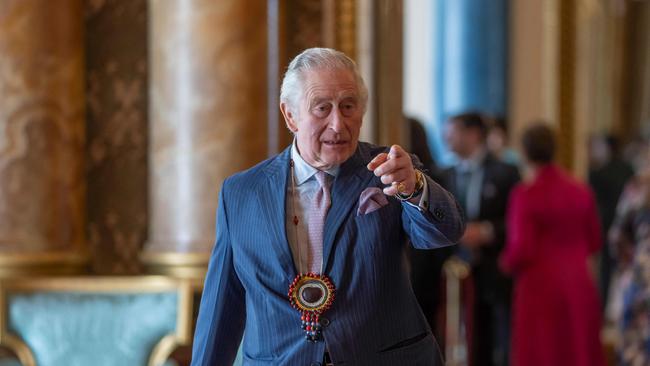King’s coronation music in tune with his architecture tastes
Charles will on May 6 also have Greek Orthodox chanting as a tribute to his late father.

Britain’s King Charles has announced the music he wants at his coronation in Westminster Abbey on May 6, and three things leap out about the selection.
The first is that we won’t be short of tunes. From Andrew Lloyd Webber to Debbie Wiseman and Patrick Doyle – two film and TV composers who have dozens of award-winning soundtracks under their belts – the 12 commissions for new music have overwhelmingly gone to seasoned composers who generally write traditional, tonal pieces. The King’s taste in music is very much in line with his taste in architecture.
Doubtless social media will be full of musical snobs decrying the choice of the composer of Cats and Phantom of the Opera to write the main choir anthem for the coronation.
But the critics might reflect that, with the insidiously catchy Pie Jesu from his Requiem, Lloyd Webber did compose one of the most performed sacred choral pieces of the past 50 years.
Lloyd Webber said his anthem would include words “slightly adapted from Psalm 98”, which begins “O sing unto the Lord a new song, for he hath done marvellous things”. He scored it for the Westminster Abbey choir and organ, as well as the ceremonial brass and orchestra.
Those hoping Charles might have broken the habit of a lifetime and given a hearing to the world-class British composers who strike a more discordant and avant-garde tone – the likes of Thomas Ades, Mark-Anthony Turnage and George Benjamin – will be disappointed by their omission but hardly surprised.
The second striking thing is that several of the chosen composers have connections with the royal family, and usually with Charles personally, going back years. Paul Mealor wrote a well-crafted if rather slushy anthem for the wedding of William and Kate in 2011.
Singer-songwriter Sarah Class has been dutifully turning out soundtracks for Charles’s “sustainability” projects. Nigel Hess was commissioned by Charles to write a piano concerto in memory of the Queen Mother, and he also turned Charles’ 1980 short story, The Old Man of Lochnagar, into a ballet. Judith Weir has been Master of the King’s (formerly Queen’s) Music since 2014.
And so on. It’s admirable that Charles can make commissioning choices based on his own knowledge and personal contacts, rather than being guided by a committee. But it does make the list rather one-generational. Almost no one under 40 gets a look in. That’s a shame. Sparky young British composers might have brought a different sort of fizz to the celebrations.
Where Charles can’t be faulted is in the third notable area: the diversity of his choice. To balance all those dead white males – Handel, Elgar, Parry and so forth – whose music has to be heard at the coronation “because it always has”, the King has included two black British composers (Shirley J. Thompson and Roderick Williams, who is also featured as a vocal soloist alongside soprano Pretty Yende) and the quirky Tarik O’Regan, whose ancestors are Algerian, English and Irish.
Born in the small town of Piet Retief, near Maputo in South Africa, Yende, 37, was inspired to learn opera at the age of 16 after seeing a BA advertisement featuring Lakme’s Flower Duet.
There’s diversity, too, in the choice of performers. The choirs of Westminster Abbey and the Chapel Royal, bolstered by singers from John Eliot Gardiner’s peerless Monteverdi Choir, may be the quintessence of the “English choral sound”.
But there is also a specially assembled gospel choir called The Ascension Choir and (to redress a lamentable gender imbalance in the Abbey and Chapel Royal choirs) girl choristers from Truro Cathedral and the consistently amazing school choir of Methodist College in Belfast.
Particularly notable, too, will be a contribution from the Byzantine Chant Ensemble. Byzantine chant includes some of the oldest Christian music in existence, kept alive by the Greek Orthodox Church.
We are told that including it is a specific tribute to the Greek origins of Charles’s father, the late Prince Philip. But it also chimes with Charles’s famous wish to be “protector of faiths”, rather than just defender of the faith of the Anglican Church that he now heads.
THE SUNDAY TIMES



To join the conversation, please log in. Don't have an account? Register
Join the conversation, you are commenting as Logout